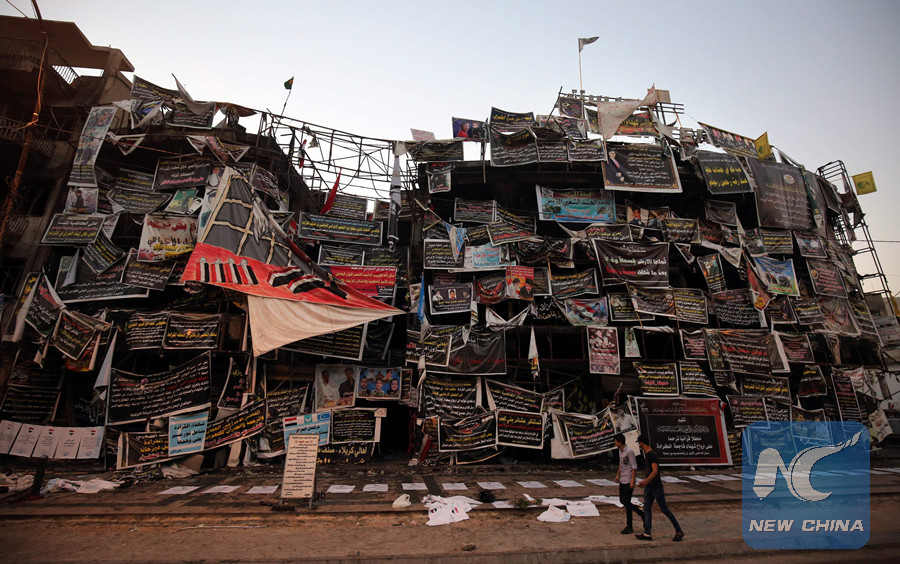
Iraqis walk past on August 3, 2016 the site of an explosion which killed more than 300 people in Baghdad's Karrada district, as they mark one month since the bombing. (AFP/Xinhua)
BAGHDAD, Aug. 15 (Xinhua) -- Iraq's parliament approved on Monday five cabinet members under a reshuffle presented by Prime Minister Haider al-Abadi, as part of his reforms aimed at fighting corruption, state TV reported.
The lawmakers voted in the ministers of oil, water resources, construction and housing, higher education, and transport, but they failed to vote in a candidate for the ministry of trade, the state-run channel of Iraqiya said.
The five new ministers were sworn in at the session that was attended by 210 legislators out of the 328-seat parliament, according to the channel.
Abadi's move came after the Iraqi federal court on June 28 invalidated an earlier reshuffle following disagreement among the parliament's political blocs.
Observers see the court's verdict as a serious blow to Abadi's efforts for presenting comprehensive reforms, including a cabinet reshuffle to replace ministers, who were chosen to balance the divisions among the Iraqi parties, ethnic and sectarian factions, with technocrats, in order to end corruption and provide better services.
Months-long protests by Iraqis as well as many legislators from various parties demanded an end to the quota system, which was created following the 2003 U.S.-led invasion of Iraq to control and divide Iraq's resources between political parties representing Iraq's ethnic and sectarian factions.
Some political blocs and politicians apparently have been resisting the reforms because there is a lack of trust among the political parties who see that such reforms, or part of them, are marginalizing their factions from the political scene which was originally built on power-sharing agreements.
A series of failed reform measures have paralyzed Iraq's parliament and the government as the country struggles to fight the Islamic State (IS) militant group, which seizes swathes of territories in northern and western Iraq, and in dire need to respond to an economic crisis sparked in part by a plunge in global oil prices.

